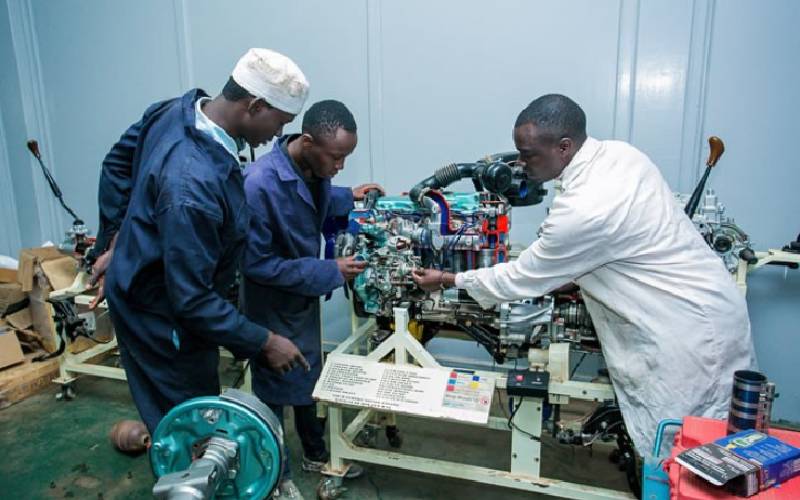×
The Standard e-Paper
Fearless, Trusted News

Intensive work based training sessions on real and simulated equipment at NITA workshops towards Industry recognised National Trade Test Certificates.
By CS Labour and Social Protection.